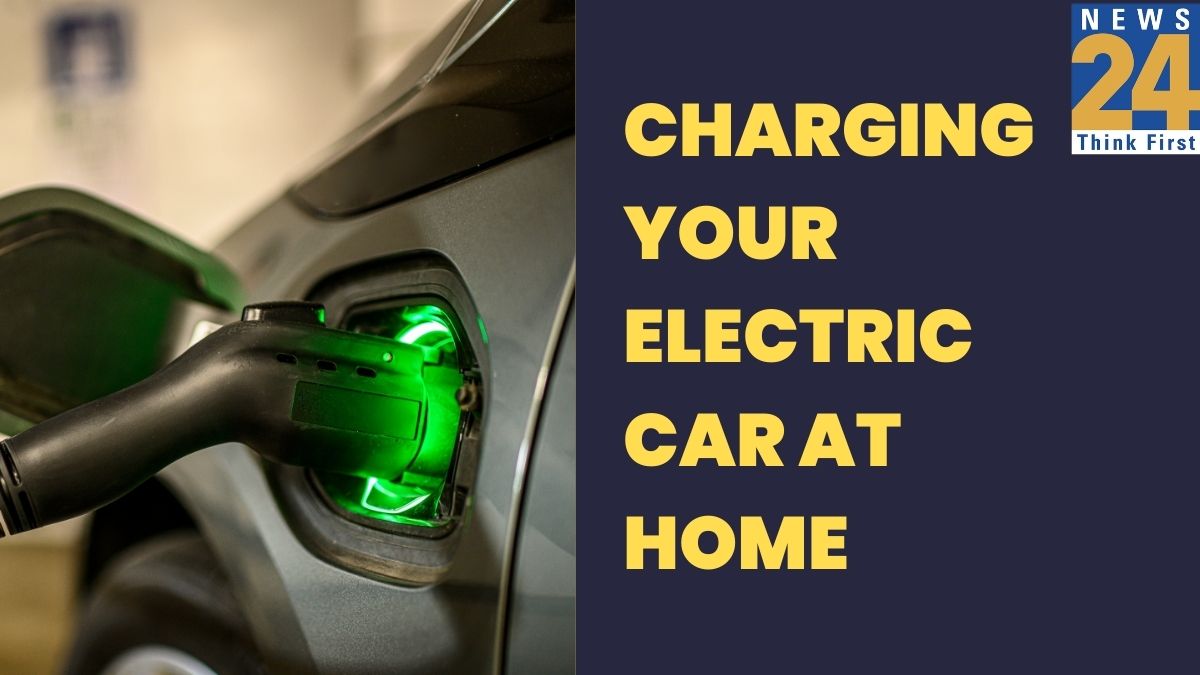Electric cars are emerging as an increasingly popular choice in India, thanks to their eco-friendly nature, fuel cost savings and government incentives. These electric vehicles are cheaper to maintain and produce zero tailpipe emissions. However, charging them can be challenging and this worry makes many people reluctant to buy an electric car. The good news is that electric cars can be easily charged at home as well.
With a dedicated EV charger, you can fully charge your vehicle overnight. Alternatively, you can use a fast charger to charge your electric vehicle in one to two hours. This article equips you with all you need to know about charging your electric car at home.
How to charge your electric car at home?
- Get a professional to install your own electric car charging station at home.
- For a hardwired charger, choose a charging point providing easy access to the electric vehicle.
- Take advantage of your charger’s fast charging capability and built-in features for easy charging.
- Plug in the charger overnight so that your EV gets fully charged by the morning.
- Quickly recharge your EV battery during the day if necessary.
Understanding home EV charging: Levels and options
When you charge electric vehicles at home, you plug your vehicle into a power outlet to charge the battery. Depending on the size of the battery and the charging equipment used, the charging process may take several hours. There are two main types of electric vehicle charging: Level 1 and Level 2.
ALSO READ: Self-Driving Electric Cars In India – Future Prospects – Know It All Now!
Level 1 Charging: The slowest charging option, it requires the least amount of equipment. Level 1 charging requires a standard household electric outlet and a charging cable provided with your electric vehicle. It may take up to 20 hours to fully charge a battery with this type of charging, which is why it is ideal for overnight charging.
Level 2 Charging: It is a faster charging option and all you need is a 240-volt power outlet and a Level 2 charging station. You can install this charging station at home and can charge your electric vehicle up to six times faster than Level 1 charging. This type of charging can fully charge an electric vehicle battery in four to eight hours.
How fast can you charge your electric car at home?
The time needed to charge an electric vehicle at home ranges from 30 minutes to 12 hours. Charging time essentially depends on the speed of your charging point and the size of your vehicle’s battery.
How often should you charge an EV at home?
Charging electric vehicles at home is just like charging any other electronic device. This allows you to connect the car to a charger when required.
Most people prevent their electric vehicle from discharging to 0% by recharging it on time. You can connect the charger to your EV overnight to have a fully charged battery in the morning. Keeping your battery charged gives you the flexibility to keep your car ready for unexpected trips.
Step-by-step guide: Installing electric vehicle charging station at home
You must call a professional to install an electric car charging station at your home. This will ensure safety and accuracy. Now, follow the steps below to install your electric vehicle charging station.
Step 1: Purchase a home EV charger as per the vehicle’s battery capacity.
Step 2: Assess and confirm that the installation area meets standard technical safety criteria.
Step 3: Make sure your home’s power supply can handle the load from the EV charger. Otherwise, contact your local electrical authority to increase the power limit.
Step 4: Ask the electrician to make room in the electrical panel for a circuit breaker.
Step 5: Install the charger and check that the wiring is secure before you start charging the EV at home.
How much does it cost to charge your electric car at home?
The cost of charging your electric car at home depends on two factors.
- The capacity of your electric car battery.
- The cost per unit of energy you get from your electricity supplier.
The cost of electricity per kWh (Kilowatt hour) ranges approximately between Rs 8 and Rs 10, depending upon the state you live in in India. In contrast, the battery capacity of electric vehicles in India ranges between 20 kWh and 45 kWh.
This way you can check the battery capacity, charging time and electricity costs at your home. It will help you calculate the cost.
ALSO READ: Best Electric Cars In India – Top Picks For 2024-Check Now!
Types of Home EV chargers
1. Rapid EV chargers
This charger is the fastest home charging station for electric cars. A rapid charger uses high-power alternating current (AC) or direct current (DC) to charge an electric vehicle’s battery quickly.
A rapid charger can charge it from 0% to 80% in 20 minutes, depending on the make and model of your electric vehicle. Some modern electric vehicles can take around an hour to reach 80% charge with a rapid charger.
Charging starts quickly, but the EV slows down the charging speed once it reaches 80% level. It protects the battery from internal damage and improves charging efficiency.
It’s important to note that you can only use a rapid charger on electric vehicles that support fast charging. You will need a hardwired unit as rapid chargers are not currently available in portable units.
3. Fast EV chargers
Fast chargers run on AC and are often used to charge electric vehicles at home. The charger capacity and vehicle model determine the charging speed you can achieve with these chargers.
Fast chargers typically offer a charging power of 22 kW or 7 kW. A 7 kW fast charger can charge a 40 kW electric vehicle battery from 0 to 100% in 4 to 6 hours. A 22 kW fast charger can charge a 40 kW electric vehicle battery from 0 to 100% in just 1 to 2 hours.
It is important to ensure the compatibility of your electric vehicle battery with a 22 kW or 7 kW charging station. Although fast EV chargers are popular in public places, you can also install one at home for personal use. Both portable and hardwired fast chargers are available in the market.
3. Regular EV chargers
A regular charger is the most common home EV charging station you can install. They offer slower charging speeds as compared to rapid or fast chargers. So, overnight charging would be the right approach if you want to use this charger.
It can provide a charging rate ranging between 3 kW and 6 kW. Charging an electric vehicle from 0 to 100% takes approximately 8 to 12 hours. There are two options – portable and hardwired regular EV chargers.










